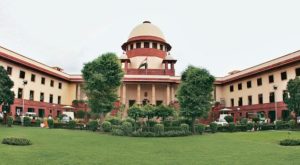 On the 24th of August, 2017, the Indian Supreme Court handed down an important decision concerning image and personality rights. In fact, it deemed the right to privacy as a fundamental right. It has, however, left some important questions open, in particular, the definition of personality rights giving rise to such right to privacy.
On the 24th of August, 2017, the Indian Supreme Court handed down an important decision concerning image and personality rights. In fact, it deemed the right to privacy as a fundamental right. It has, however, left some important questions open, in particular, the definition of personality rights giving rise to such right to privacy.
Personality rights may be defined as the right to control and profit from the commercial use of one’s name, image, likeness, etc. This right prevents its unauthorized appropriation for any commercial purposes. Commercial utilization of one’s name and likeness has been done right from 1960’s by the likes of yesteryear’s actors and sports persons such as Dilip Kumar and Kapil Dev.
However, the past couple of years have witnessed an increasing amount of litigation regarding personality rights with the likes of actors and musicians famous in India such as Rajnikanth and Sonu Nigam fighting legal battles to prevent the unsolicited usage of their names and likeness – a trend that was repeated this past year, when apparel brand Tommy Hilfiger was marred in controversy over its alleged unauthorized usage of some photographs of Indian actor Hrithik Roshan and his sons as part of a promotional campaign.
The fact that the photographs used in this matter were unsolicited pictures raised not only an issue pertaining to the invasion of privacy, but also whether the concept of image and personality rights needs statutory protection in India. As is true for domain names, which at present can only effectively protected against third-party abuse by means of trademark registrations, there is no existent statutory mechanism to effectively combat the unauthorized commercial exploitation of celebrities’ personality rights.
The advent of social media tools like Facebook and Instagram reflects the commercial importance of these rights. While the likes of Kim Kardashian are considered pioneers behind the advent of social media endorsements in the West, in India, too, this trend is gaining momentum. A number of film stars and sportspersons are now effectively utilizing the commercial scope of their names and likeness, and an emergent generation of public persons whose “celebrity status” derives from other sources are also pursued for endorsements. In an endeavor to keep costs down and remaining dynamic, brand owners recruit fresh and relatively unheralded models and celebrities for endorsements. As a result, individuals such as Radhika Seth, who have an Instagram following numbering in lakhs, are endorsing products by brands such as Freddy Jeans or Nykaa Lipsticks in India.
This shows that it is ever more important to not only understand but to have a well-defined basis to protect the conceptualization of personality rights. Not only global superstars such as Cristiano Ronaldo and Lionel Messi can derive significant revenue from their own likeness, but also young up & comers.
It is indeed vital from a legal perspective to define what constitutes a celebrity who has personality rights in the present day and age. This question is important as the concept of personality rights has evolved as an immense source of revenue for the rich, famous and talented public personas of the world. One could argue, as Harshavardhan Ganesan has done, that there should be some sort of public declaration of the right of personality. That would, in theory, prevent the unsolicited usage of such individuals’ likeness by any prospective infringer. This becomes even more important with the recent decision by the Indian Supreme Court. In theory it would ensure that every individual has a latent right to personality, which he(or she!) may activate if there is a commercial viability to his or her name or likeness. Simultaneously if the government has stringent guidelines holding celebrities accountable for the products they endorse, then an equivalent right should be granted to them protecting the commercial usage of their personality (see the article in WARC Staff here). This would remove the ambiguity that the courts have contended with over the years and have a definite statutory basis to deal with the same.
_____________________________
To make sure you do not miss out on regular updates from the Kluwer Trademark Blog, please subscribe here.


